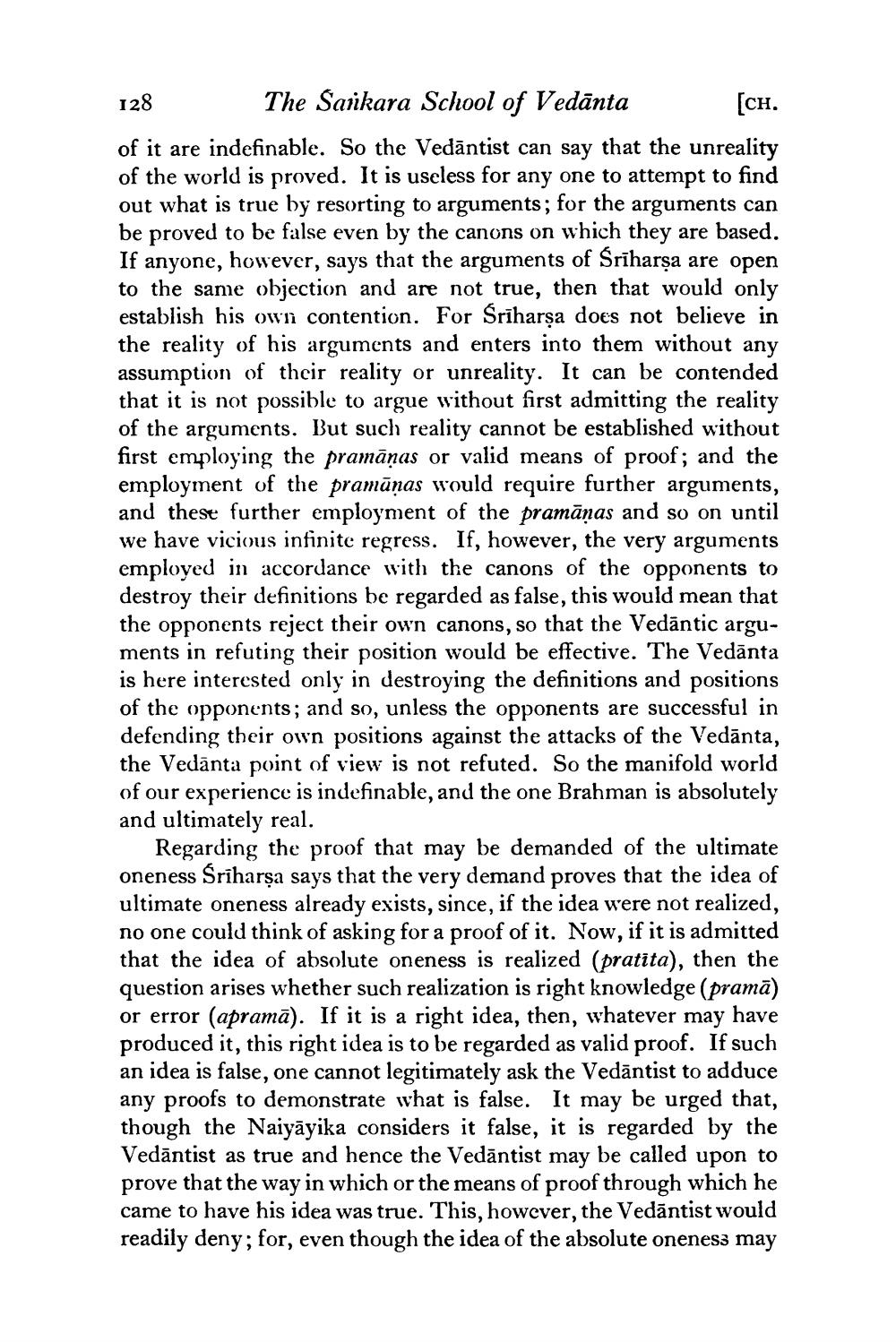________________
128
The Sankara School of Vedanta
[CH.
of it are indefinable. So the Vedāntist can say that the unreality of the world is proved. It is useless for any one to attempt to find out what is true by resorting to arguments; for the arguments can be proved to be false even by the canons on which they are based. If anyone, however, says that the arguments of Śrīharṣa are open to the same objection and are not true, then that would only establish his own contention. For Sriharṣa does not believe in the reality of his arguments and enters into them without any assumption of their reality or unreality. It can be contended that it is not possible to argue without first admitting the reality of the arguments. But such reality cannot be established without first employing the pramāņas or valid means of proof; and the employment of the pramāņas would require further arguments, and these further employment of the pramānas and so on until we have vicious infinite regress. If, however, the very arguments employed in accordance with the canons of the opponents to destroy their definitions be regarded as false, this would mean that the opponents reject their own canons, so that the Vedantic arguments in refuting their position would be effective. The Vedanta is here interested only in destroying the definitions and positions of the opponents; and so, unless the opponents are successful in defending their own positions against the attacks of the Vedānta, the Vedanta point of view is not refuted. So the manifold world of our experience is indefinable, and the one Brahman is absolutely and ultimately real.
Regarding the proof that may be demanded of the ultimate oneness Śrīharṣa says that the very demand proves that the idea of
ultimate oneness already exists, since, if the idea were not realized, no one could think of asking for a proof of it. Now, if it is admitted that the idea of absolute oneness is realized (pratita), then the question arises whether such realization is right knowledge (pramā) or error (apramā). If it is a right idea, then, whatever may have produced it, this right idea is to be regarded as valid proof. If such an idea is false, one cannot legitimately ask the Vedantist to adduce any proofs to demonstrate what is false. It may be urged that, though the Naiyāyika considers it false, it is regarded by the Vedāntist as true and hence the Vedantist may be called upon to prove that the way in which or the means of proof through which he came to have his idea was true. This, however, the Vedantist would readily deny; for, even though the idea of the absolute oneness may




